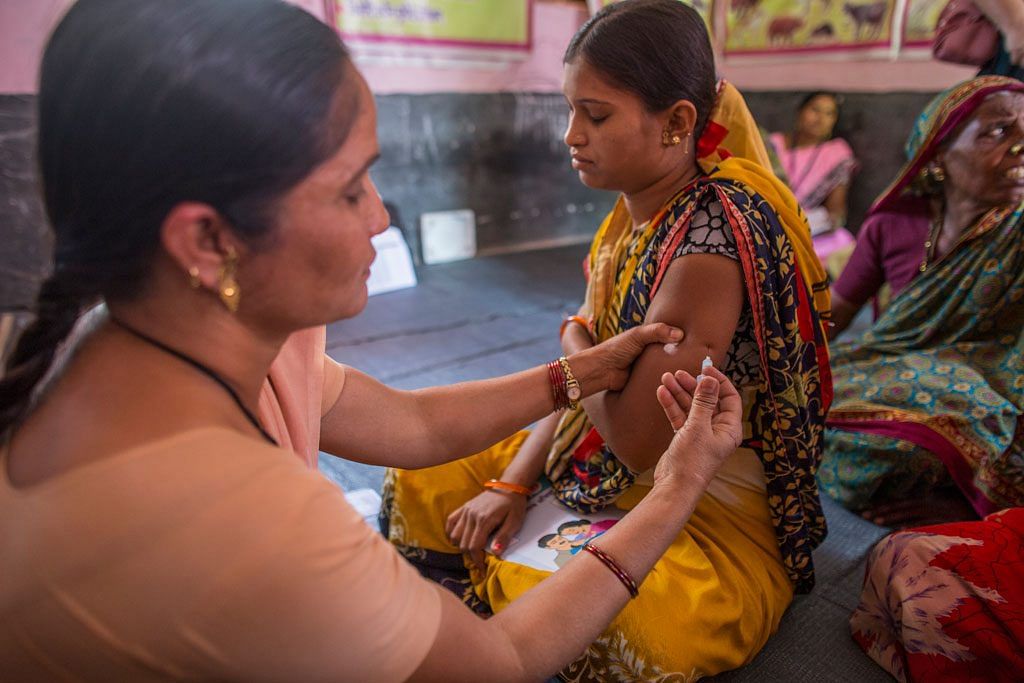Among South Asian countries, with a score of 41.2 on the HAQ, India ranks after Bangladesh and Bhutan.
New Delhi: Healthcare experts say inequality and disparity are reasons for India’s 145 rank out of 195 countries on the Healthcare Access and Quality Index (HAQ), according to the Global Burden of Disease (GBD) study published by medical journal The Lancet Wednesday.
Among South Asian countries, India ranks after Bangladesh and Bhutan with a score of 41.2 on the HAQ. However, comparatively it is up from 24.7 in 1990.
Using an index based on 32 causes of death that should be preventable with effective medical care, the study gives each country a HAQ score between 0-100.
‘Results not a surprise’
Amir Ullah Khan, professor, health economics, Manipal University said India’s ranking is unsurprising. “In a country with high inequality, the access to healthcare and education is also unequal. So this should not come as a surprise. With an unequal income, we have unequal accessibility to healthcare as well. The main challenge to overcome is the shortage of medical staff in the country,” Khan told ThePrint.
He underlined poor infrastructure, absence of staff including doctors and nurses, expensive drugs and no medical insurance as causes for India’s poor faring.
The study provides updated estimates from 1990 to 2016 for the HAQ Index in 195 countries and territories, as well as at the global and regional levels. This allowed for a more in-depth examination of inequalities in personal healthcare access and quality, according to the study.
Performance of Indian states
For the first time, The Lancet reported subnational levels and trends on the HAQ Index for seven countries: India, Brazil, China, England, Japan, Mexico, and US.
Uttar Pradesh and Assam had the lowest HAQ—below 35.9—while Kerala scored the best with an HAQ falling in the 63.2-68.9 range. Other Indian states, including Madhya Pradesh, Rajasthan, Chhattisgarh, Odisha, Jharkhand, Bihar, Arunachal Pradesh, Meghalaya and Manipal, scored in the 35.9-44.8 range.
Dr K.K. Aggarwal, a former president of Indian Medical Association (IMA), said that with such great disparity in India, it is not fair to compare the entire country to the best healthcare in the world.
“There are two parts of India: one is for the rich which has the excellent medical facility in the shape of a booming private healthcare, and the other which is for the poorest of poor, where even the doctor does not have a reach. So a study cannot compare India with the world rank in totality. If only our best medical care and states like Kerala and Tamil Naidu are compared, we will rank on the top,” Aggarwal told ThePrint.
While India has improved since 1990, reaching 28.0 in the year 2000 and 41.2 in 2016, its HAQ score is below 50 for 24 out of the 32 causes of death. The worst score is for skin cancer at 12. Hodgkin’s lymphoma is at 18, neonatal deaths at 24, among others. For tuberculosis, which is a worrying area for India, the HAQ score is at 30.
On diseases like tuberculosis, Aggarwal said it is an issue of population density. “Countries like India, Pakistan and Bangladesh will score low in this area due to large population and less space. Now, when the respective governments have focused on bringing down the numbers of TB, these countries could be compared with each other.”
